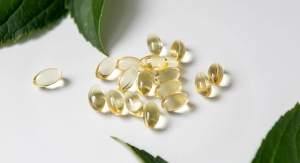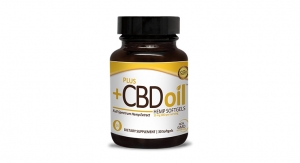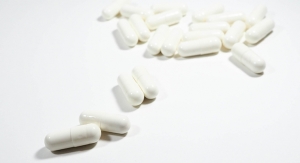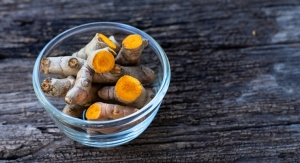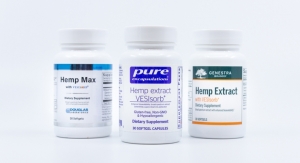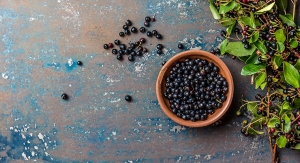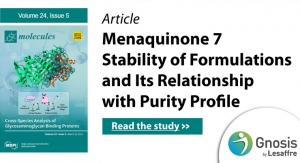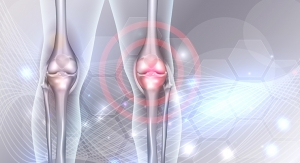08.15.19
Many horses suffer from equine osteoarthritis (OA), or the breakdown of joint cartilage and underlying bone due to inflammation. Joint inflammation is often a naturally occurring process and may result from a variety of factors, including infection, age, and years of joint use.
Despite decades of research, a reversal of the OA disease process remains evasive since horses suffering from joint inflammation can experience pain, stiffness, and lameness. Pain control is key in keeping arthritic horses comfortable.
The results of a two-period crossover study performed at Louisiana State University School of Veterinary Medicine and presented at the American Association of Equine Practitioners (AAEP), suggested that Longvida from Verdure Sciences may help to reduce pain and alleviate lameness in horses with OA.
The study sought to evaluate the effects of an oral herbal supplement containing Longvida Optimized Curcumin on lameness and joint pain in horses with OA. A gastroscopy observation was also performed to observe the supplement’s effects on stomach health.
The study evaluated six thoroughbred horses with naturally occurring OA. Test subjects either received grain (control) or grain top-dressed with the herbal supplement once per day for 30 days. Researchers collected lameness data on day zero, day 15, and day 30 of the study, blood sample data on day one and day 14, and gastroscopy data on day zero and day 31.
The study concluded that the herbal supplement was safe when fed to horses, reducing pain on palpation and improving weight-bearing in lame legs after 30 days of feeding in Longvida-treated horses. No adverse responses were noted in the treated horses. Stomach health was also maintained throughout the treatment process.
Despite the wide array of joint supplements available for horses, the majority of these products have been shown by independent laboratory analyses to contain less of their active ingredients than their labels suggest, creating what some call a “buyer-beware market” in which veterinarians and horse owners alike must rely on limited research and company reputations when selecting a supplement.
“As we celebrate 10 years of having Longvida available on the market, our team at Verdure continues to be excited by the powerful ingredient’s seemingly limitless frontier of health applications,” said Kristen Marshall, marketing coordinator at Verdure Sciences.
“The past decade of mounting research and support for Longvida truly sets the standard for high-caliber ingredients,” she said.
Longvida is non-GMO Project Verified and includes glyphosate residue free certification, sports banned substances testing, NASC (National Animal Supplement Council) preferred ingredient status, approximately 30 clinical trials, and more, she added.
“The results of this equine study yet again demonstrate Longvida’s robust potential for supporting healthy aging in animals as well as people, and if history is any indication, we anticipate that future studies will not only provide further substantiation of these benefits but also inspire research into new areas of potential application,” Marshall said.
Despite decades of research, a reversal of the OA disease process remains evasive since horses suffering from joint inflammation can experience pain, stiffness, and lameness. Pain control is key in keeping arthritic horses comfortable.
The results of a two-period crossover study performed at Louisiana State University School of Veterinary Medicine and presented at the American Association of Equine Practitioners (AAEP), suggested that Longvida from Verdure Sciences may help to reduce pain and alleviate lameness in horses with OA.
The study sought to evaluate the effects of an oral herbal supplement containing Longvida Optimized Curcumin on lameness and joint pain in horses with OA. A gastroscopy observation was also performed to observe the supplement’s effects on stomach health.
The study evaluated six thoroughbred horses with naturally occurring OA. Test subjects either received grain (control) or grain top-dressed with the herbal supplement once per day for 30 days. Researchers collected lameness data on day zero, day 15, and day 30 of the study, blood sample data on day one and day 14, and gastroscopy data on day zero and day 31.
The study concluded that the herbal supplement was safe when fed to horses, reducing pain on palpation and improving weight-bearing in lame legs after 30 days of feeding in Longvida-treated horses. No adverse responses were noted in the treated horses. Stomach health was also maintained throughout the treatment process.
Despite the wide array of joint supplements available for horses, the majority of these products have been shown by independent laboratory analyses to contain less of their active ingredients than their labels suggest, creating what some call a “buyer-beware market” in which veterinarians and horse owners alike must rely on limited research and company reputations when selecting a supplement.
“As we celebrate 10 years of having Longvida available on the market, our team at Verdure continues to be excited by the powerful ingredient’s seemingly limitless frontier of health applications,” said Kristen Marshall, marketing coordinator at Verdure Sciences.
“The past decade of mounting research and support for Longvida truly sets the standard for high-caliber ingredients,” she said.
Longvida is non-GMO Project Verified and includes glyphosate residue free certification, sports banned substances testing, NASC (National Animal Supplement Council) preferred ingredient status, approximately 30 clinical trials, and more, she added.
“The results of this equine study yet again demonstrate Longvida’s robust potential for supporting healthy aging in animals as well as people, and if history is any indication, we anticipate that future studies will not only provide further substantiation of these benefits but also inspire research into new areas of potential application,” Marshall said.




